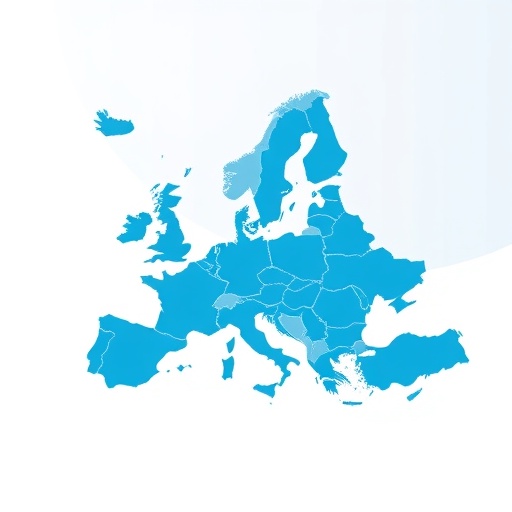In recent years, the burgeoning field of data science has shown an incredible potential to revolutionize healthcare, especially for the elderly population across Europe. A newly released position paper by leading experts in the field has sparked a call to action, emphasizing the urgent need for collaboration on data science initiatives aimed at improving the quality of life for older adults. This initiative is geared towards leveraging the vast amounts of healthcare data that are generated on a daily basis.
The position paper, authored by Mitchell, Ogliari, Burton, and a collaborative team, has been published in the European Geriatric Medicine journal. It provides a comprehensive overview of what is at stake for older individuals in the data-driven epoch of modern medicine. With the number of senior citizens expected to grow significantly, the authors argue that harnessing data science is key to addressing pressing health challenges faced by this demographic. They stress that without a concerted effort, important insights rooted in data may remain undiscovered, leaving many in vulnerable positions.
One of the most compelling aspects of the paper is its acknowledgment of the diversity within the older population. Older adults are not a homogenous group; their needs and expectations can vary widely depending on health, social circumstances, and context. The authors highlight that data science offers a unique opportunity to tailor solutions and interventions that specifically target various needs. This granularity ensures that programs are effective and relevant, ultimately enhancing the overall well-being of older individuals.
The paper calls for interdisciplinary collaboration across data science, gerontology, public health, and other relevant fields. This collaboration is crucial for developing a robust framework that can navigate the intricacies of data management and privacy while ensuring that valuable insights are harnessed. The authors argue that a unified approach is essential for generating meaningful outcomes from data, which ultimately promotes successful aging and healthy living among seniors.
Data science methodologies such as machine learning and predictive analytics have the potential to uncover trends and patterns that were previously elusive. For instance, by analyzing healthcare data, researchers can identify risk factors for various diseases and create preventive strategies tailored to specific populations. Furthermore, these methodologies can assist healthcare providers in making informed decisions about patient care, resulting in improved health outcomes.
Additionally, the position paper emphasizes the importance of accessibility. Data-driven solutions must be designed with the end-user in mind, ensuring that older adults, their families, and caregivers can easily access and understand the information provided. This focus on usability will empower seniors, alleviating feelings of isolation often associated with aging and promoting proactive healthcare management.
Another critical point raised in the paper is the ethical implications associated with data usage in older populations. The authors stress the necessity for transparency and ethical considerations when dealing with sensitive health data. Older individuals often possess a wealth of knowledge and lived experience, and their insights must be integrated into the design of data-driven interventions. Additionally, ensuring informed consent and protecting privacy are vital elements that cannot be overlooked.
A compelling historical context is provided in the paper, as the authors draw on lessons learned from previous healthcare advancements. The transformation of medical practices through technology in the past offers a blueprint for what can be achieved today through data science. For example, the advent of electronic health records played a pivotal role in improving patient care; a similar revolution is expected with the integration of data science.
Moreover, the authors propose establishing a network of researchers, practitioners, and policymakers across Europe to foster shared learning and collaboration. This collective effort would not only pool resources but also facilitate the establishment of best practices in the use of data science for geriatrics. Such a network could pave the way for innovative projects that are culturally and regionally relevant, enabling tailored solutions to the diverse challenges faced by older adults.
In addition to collaboration, the paper calls for increased funding and investment in data science initiatives focused on aging. Governments, private organizations, and academic institutions are urged to allocate resources towards research and development in this field. This funding is essential for driving the science forward and ensuring that data insights translate into practical applications that positively impact elder care.
Furthermore, the implications of the COVID-19 pandemic on older adults have reinforced the urgency of this call to action. The pandemic has wreaked havoc on senior populations, highlighting disparities in health outcomes that can be addressed through informed data-driven approaches. The lessons learned during this time provide a unique opportunity to rebuild a more responsive healthcare system that is resilient and adaptable to future challenges.
The authors conclude the position paper by emphasizing that while the potential of data science in healthcare is vast, it is the collective commitment to collaboration, ethics, and accessibility that will determine the success of these initiatives. The time is ripe for action, and the call to collaborate on data science for older people serves as a crucial step toward a healthier future for European seniors.
As we move forward in addressing the complex issues faced by older adults, it is imperative that all stakeholders come together to harness the promise of data science. The position paper serves as a rallying point for action, urging a re-examination of how we approach elderly care through the lens of data. By embracing innovation and collaboration, we can transform the landscape of health and well-being for older people across Europe.
Subject of Research: Data Science and Health Care for Older Adults
Article Title: Call to collaborate on data science for older people across Europe: an EuGMS Big Data Special Interest Group position paper.
Article References:
Mitchell, A., Ogliari, G., Burton, J.K. et al. Call to collaborate on data science for older people across Europe: an EuGMS Big Data Special Interest Group position paper.
Eur Geriatr Med (2025). https://doi.org/10.1007/s41999-025-01276-y
Image Credits: AI Generated
DOI: 10.1007/s41999-025-01276-y
Keywords: Data Science, Older Adults, Health Care, Collaboration, Interdisciplinary Research




